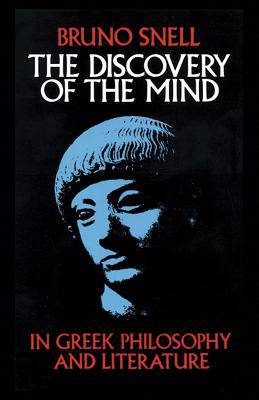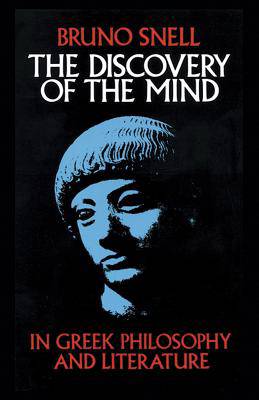
- Retrait gratuit dans votre magasin Club
- 7.000.000 titres dans notre catalogue
- Payer en toute sécurité
- Toujours un magasin près de chez vous
- Retrait gratuit dans votre magasin Club
- 7.000.000 titres dans notre catalogue
- Payer en toute sécurité
- Toujours un magasin près de chez vous
Description
"An illuminating and convincing account of the enormous change in the whole conception of morals and human personality which took place during the centuries covered by Homer, the early lyric poets, the dramatists, and Socrates." -- The Times (London) Literary Supplement.
European thinking began with the Greeks. Science, literature, ethics, philosophy -- all had their roots in the extraordinary civilization that graced the shores of the Mediterranean a few millennia ago. The rise of thinking among the Greeks was nothing less than a revolution; they did not simply map out new areas for thought and discussion, they literally created the idea of man as an intellectual being -- an unprecedented concept that decisively influenced the subsequent evolution of European thought.
In this immensely erudite book, German classicist Bruno Snell traces the establishment of a rational view of the nature of man as evidenced in the literature of the Greeks -- in the creations of epic and lyric poetry, and in the drama. Here are the crucial stages in the intellectual evolution of the Greek world: the Homeric world view, the rise of the individual in the early Greek lyric, myth and reality in Greek tragedy, Greek ethics, the origin of scientific thought, and Arcadia.
Drawing extensively on the works of Homer, Pindar, Archilochus, Aristophanes, Sappho, Heraclitus, the Greek tragedians, Parmenides, Callimachus, and a host of other writers and thinkers, Snell shows how the Homeric myths provided a blueprint for the intellectual structure the Greeks erected; how the notion of universality in Greek tragedy broadened into philosophical generalization; how the gradual unfolding of the concepts of intellect and soul provided the foundation for philosophy, science, ethics, and finally, religion.
Unquestionably one of the monuments of the Geistegeschichte (History of Ideas) tradition, The Discovery of the Mind throws fresh light on many long-standing problems and has had a wide influence on scholars of the Greek intellectual tradition. Closely reasoned, replete with illuminating insight, the book epitomizes the best in German classical scholarship -- a brilliant exploration of the archetypes of Western thought; a penetrating explanation of how we came to think the way we do.
European thinking began with the Greeks. Science, literature, ethics, philosophy -- all had their roots in the extraordinary civilization that graced the shores of the Mediterranean a few millennia ago. The rise of thinking among the Greeks was nothing less than a revolution; they did not simply map out new areas for thought and discussion, they literally created the idea of man as an intellectual being -- an unprecedented concept that decisively influenced the subsequent evolution of European thought.
In this immensely erudite book, German classicist Bruno Snell traces the establishment of a rational view of the nature of man as evidenced in the literature of the Greeks -- in the creations of epic and lyric poetry, and in the drama. Here are the crucial stages in the intellectual evolution of the Greek world: the Homeric world view, the rise of the individual in the early Greek lyric, myth and reality in Greek tragedy, Greek ethics, the origin of scientific thought, and Arcadia.
Drawing extensively on the works of Homer, Pindar, Archilochus, Aristophanes, Sappho, Heraclitus, the Greek tragedians, Parmenides, Callimachus, and a host of other writers and thinkers, Snell shows how the Homeric myths provided a blueprint for the intellectual structure the Greeks erected; how the notion of universality in Greek tragedy broadened into philosophical generalization; how the gradual unfolding of the concepts of intellect and soul provided the foundation for philosophy, science, ethics, and finally, religion.
Unquestionably one of the monuments of the Geistegeschichte (History of Ideas) tradition, The Discovery of the Mind throws fresh light on many long-standing problems and has had a wide influence on scholars of the Greek intellectual tradition. Closely reasoned, replete with illuminating insight, the book epitomizes the best in German classical scholarship -- a brilliant exploration of the archetypes of Western thought; a penetrating explanation of how we came to think the way we do.
Spécifications
Parties prenantes
- Auteur(s) :
- Editeur:
Contenu
- Nombre de pages :
- 352
- Langue:
- Anglais
Caractéristiques
- EAN:
- 9780486242644
- Date de parution :
- 17-11-11
- Format:
- Livre broché
- Format numérique:
- Trade paperback (VS)
- Dimensions :
- 137 mm x 208 mm
- Poids :
- 353 g







